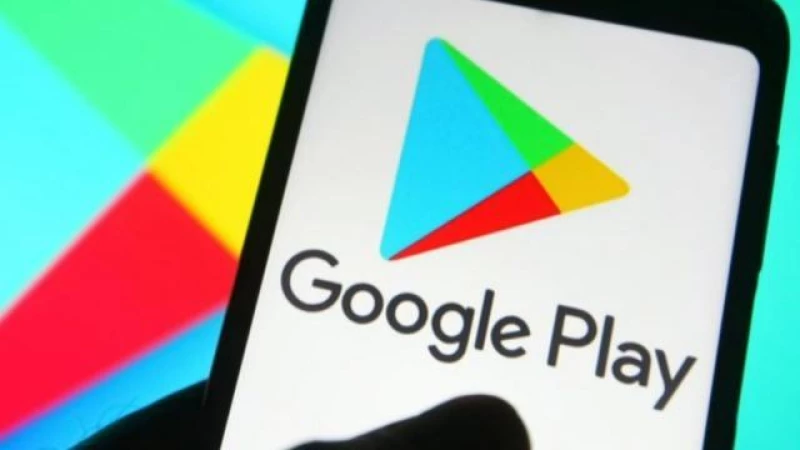Google Settles Android App Store Antitrust Case for $700 Million
Google has reached a settlement in an antitrust case related to its Android app store, agreeing to pay $700 million and make several concessions. The settlement was initially made with state attorneys general in September, but the terms were only revealed on Monday in documents filed in San Francisco federal court.
Last week, a federal court jury found Google guilty of using anticompetitive tactics in its Play Store for Android apps, which prompted the disclosure of the settlement terms. The settlement includes a payment of $630 million to compensate U.S. consumers who were affected by a payment processing system that allegedly drove up prices for digital transactions within apps downloaded from the Play Store.
The Play Store is the primary app store for Android software, which powers the majority of smartphones worldwide.
Similar to Apple's approach with its iPhone app store, Google has been collecting commissions on in-app purchases, ranging from 15% to 30%. State attorneys general argued that these fees led to higher prices due to the lack of an open market for payment processing. Google's Play Store generated billions of dollars in profit annually through these commissions, as revealed in the recent trial.
Consumers who are eligible for a portion of the $630 million compensation fund will receive automatic notifications regarding their options for receiving their share of the money.
An additional $70 million from the pre-trial settlement will be used to cover penalties and other expenses that Google is required to pay to the states.
Google has also agreed to implement changes aimed at facilitating the download and installation of Android apps from sources other than the Play Store for the next five years. It will reduce the number of security warnings, or "scare screens," that appear when users choose alternative options.
Greater payment options
Developers of Android apps will have more flexibility to offer alternative payment choices to consumers, rather than automatically processing transactions through the Play Store and its commission system. Additionally, apps will be able to promote lower prices for consumers who opt for alternative payment methods.
Settlement Reached in Antitrust Lawsuit Against Google's App Distribution Practices
Washington D.C. Attorney General Brian Schwalb hailed the settlement as a victory for the tens of millions of people in the U.S. that rely on Android phones to help manage their lives. "For far too long, Google's anticompetitive practices in the distribution of apps deprived Android users of choices and forced them to pay artificially elevated prices," Schwalb said.
Wilson White, Google's vice president of government affairs and public policy, framed the deal as a positive for the company, despite the money and concessions it entails. The settlement "builds on Android's choice and flexibility, maintains strong security protections, and retains Google's ability to compete with other (software) makers, and invest in the Android ecosystem for users and developers," White wrote in a blog post.
Although the state attorneys general hailed the settlement as a huge win for consumers, it didn't go far enough for Epic Games, which spearheaded the attack on Google's app store practices with an antitrust lawsuit filed in August 2020.
Epic undeterred by Apple ruling
Epic, the maker of the popular Fortnite video game, rebuffed the settlement in September and instead chose to take its case to trial, even though it had already lost on most of its key claims in a similar trial targeting Apple and its iPhone app store in 2021.
The Apple trial, though, was decided by a federal judge instead of the jury that vindicated Epic with a unanimous verdict that Google had built anticompetitive barriers around the Play Store. Google has vowed to appeal the verdict.
But the trial's outcome nevertheless raises the specter of Google potentially being ordered to pay even more money as punishment for its past practices and making even more dramatic changes to its lucrative Android app ecosystem.
Those changes will be determined next year by U.S. District Judge James Donato, who presided over the Epic Games trial. Donato also still must approve Google's Play Store settlement with the states.
Google faces an even bigger legal threat in another antitrust case targeting its dominant search engine that serves as the centerpiece of a digital ad empire that generates more than $200 billion in sales annually. Closing arguments in a trial pitting Google against the Justice Department are scheduled for early May before a federal judge in Washington D.C.







